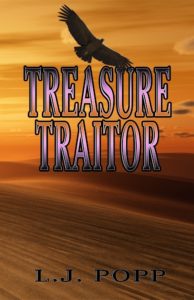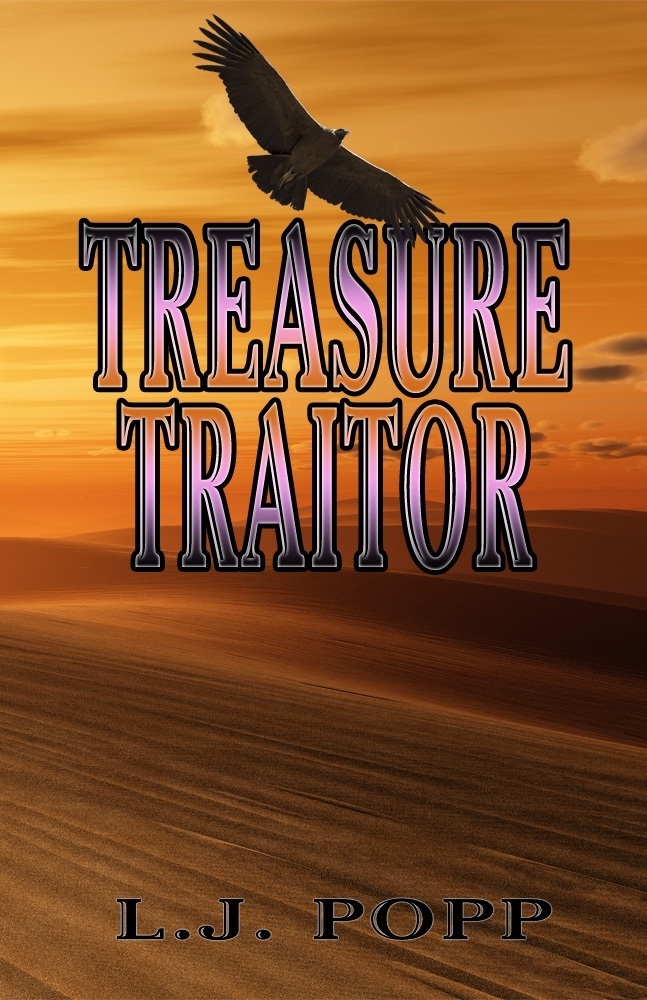Inside Another Mind
 I’ve always been fascinated by the idea of telepathy. The ability to climb outside the buzz and rumble of my own thoughts to experience the world through someone else’s eyes, ears, nose, tongue and fingers. Even its simpler form, just to converse silently with another being, gripped my imagination from early childhood. I devoured Anne McCaffrey’s Dragonriders of Pern series and Christopher Paolini’s Inheritance Cycle, both about young people with telepathic links to dragons. I longed for such a close connection with my kitty companion, to experience life inside his head for just five minutes. As a Christian, I made many connections between telepathy and how God speaks to our minds. Quietly, gently, in that still, small voice.
I’ve always been fascinated by the idea of telepathy. The ability to climb outside the buzz and rumble of my own thoughts to experience the world through someone else’s eyes, ears, nose, tongue and fingers. Even its simpler form, just to converse silently with another being, gripped my imagination from early childhood. I devoured Anne McCaffrey’s Dragonriders of Pern series and Christopher Paolini’s Inheritance Cycle, both about young people with telepathic links to dragons. I longed for such a close connection with my kitty companion, to experience life inside his head for just five minutes. As a Christian, I made many connections between telepathy and how God speaks to our minds. Quietly, gently, in that still, small voice.
Since the age of five, I’d had dozens of stories and characters spinning through my brain, all connected in the same universe. At ten, I wrote my first short story about a boy with a telepathic link to a horse. The boy lost his way in a dark, enchanted forest, his mother sent the horse after him, and the horse endured many perils before finally finding and rescuing his friend.
As I grew older, I moved away from telepathy between humans and animals to explore what implications it might bring between two human-like creatures. I loved K. A. Applegate’s Animorphs series with the telepathic Andalites. Orson Scott Card’s “buggers” in his Ender series (along with Star Trek’s Borg) taught me what group telepathy might be like. As I began dating and endured the frustrations of trying to find the ideal partner, I thought, Hey, wouldn’t it be cool if there was a race of people who didn’t have to go through this? What if they knew from the moment they were born who they were destined to marry, and their happiness in that marriage was guaranteed, as long as their partner survived? The mechanism for this unity, I decided, would be telepathy. How many women have exclaimed, “If only I knew what he was thinking!” Moreover, the members of this race could actually switch bodies with their spouse when they’d grown close enough. Imagine how it would feel to actually be someone else, what fresh perspectives it could give you not just for understanding your partner, but the whole world.
I dubbed my new race “Terrians,” because they also had the ability to affect tectonic plates and cause earthquakes. Most importantly, they could dip into their spouses’ subconsciouses and bring out hidden fears and buried pain. This mental therapy would allow the Terrians to endure the carnage of war over a long period of time without snapping. They also had a telepathic partner of the same gender who they fought with side by side, and an animal partner. Thus the Terrians became very formidable warriors.
To avoid overusing telepathy as I developed the rest of the Kingdom, a solar system of planets in which the Terrians lived, I gave the other Kingdom races particle manipulation abilities. I kept thinking about the marvelous mechanisms God created to help various creatures survive in harsh environments, and tried to design something similar. For example, the Glacians, the people furthest from the sun, could transfer heat energy from outside objects into their own bodies, thus freezing the objects but keeping themselves warm. The Pyrans, living closest to the sun, could do the opposite. The Solarians, who lived on a planet with extreme climate changes, had extra organs and tissue sacks for storing water and fat and could adjust their metabolism to go for weeks without eating or drinking. The Noctans, who lived on a planet covered by dark clouds, could gather the little amount of photons (light particles) that made it through the atmosphere and transfer them wherever needed to grow their crops. The Nimbans, who experienced frequent lightning storms, could control which direction the lighting struck and even produce large amounts of static electricity like an electric eel.
But if these “Kingdom Seekers” were warriors, who were they fighting? Another thing that had always fascinated me since childhood was the Arabian Nights. Why, I wondered, are most fantasy novels based on European mythology? I loved the Telmarines in C.S. Lewis’s Narnia series, but it bothered me that they were usually the bad guys. My favorite book, the Bible, had as its heroes a Middle Eastern people. Thus I created the Hierarchy, though I soon realized that in war there often aren’t “good guys” and “bad guys.” It depends on what side you’re on, and both the Hierarchy and Kingdom had their virtues and faults. In any case, mind powers became a very important part of the Hierarchy’s counter warfare, from prophecy to clairvoyance to telekinesis. Out of these abilities came the monara, a group of mostly noble women who used mental manipulation to encourage (often force) animals to aid them in battle. Unlike Terrians, they had multiple animal bonds.
I loved the idea of monara, but didn’t really do anything with them. Through middle and high school, I wrote a series of five novels I called the Immortals about a traveling space band who performed mostly in the Hierarchy and eventually got snagged into the war. The books stunk. As a tween and teenager, I knew nothing about how to plot a good story. I eventually abandoned the series and started writing screenplays for my film major in college, then revisited the first Immortals novel to see if I could salvage it. I soon gave it up as a lost cause, but one character really stood out to me. She was in one scene. Just one. The main character needed to get a ring for the woman he wanted to propose to, so he contracted a treasure trader. She was young, had one silver and one gold eye, and a big, black, ugly bird on her shoulder. I started to daydream about this treasure trader and wonder where she came from and who she was. One day, much to my shock, I heard her answer.
 “My name is Renagada and this is my bird, Acha. Have we got a story for you!”
“My name is Renagada and this is my bird, Acha. Have we got a story for you!”
I listened in rapt attention as she told me how her bond with Acha was different from the other monara. She didn’t send him pain. She felt his pain. She didn’t force him to protect her. He wanted to protect her, like a parent bird protecting his chick. Instead of many animal bonds, Rena just had Acha. They both knew each other’s mind inside and out, the way a Terrian knew his animal’s mind. There was only one problem. Acha was a carrion-eater. Kind of like a vulture on our world, and what mother would be thrilled with her daughter having that perched on her shoulder all the time? In fact, her mother wanted Acha dead in hopes that Renagada would gain other beast bonds. Rena had no choice but to leave her beloved fiancé and flee into the desert with Acha. Along her and Acha’s journey to become treasure traders, Renagada would make a wealth of discoveries about the war, the universe, and faith, and become a traitor to the greatest treasure she ever knew.
Thus the catchy title Treasure Traitor and its entire plot unfolded before me from the single image of this outcast girl with a bird on her shoulder. While my creative process sure took a round about way to get me from that original childhood short story to my first published novel, the journey was not in vain. An entire universe of planets, people, and plots wait to be written, not least of all An Honest Assassin and Unique Clone, the next two books in the Treasure Traitor trilogy.
So how about you? Ever wanted a telepathic connection with another person or animal? If you could be “bonded” to anything, what would it be and why?
Post a comment in the section below for a chance to win a signed copy of Treasure Traitor. Be sure to include your email address in your comment. Contest will run until midnight (Eastern time) Sunday, November 25.
– – – – –
 Laura Popp’s passion for fantasy compelled her at a young age to write her own tales, and she has kept at it ever since. Her novels, short stories, and plays have won numerous local and international awards in the fields of children’s literature and science fiction. In her “normal” life, she has been a model, film maker, teacher, world traveler, and missionary to Japan; India; Malawi, Africa and the U.S. Her ultimate dream is to have a television series based on her Hierarchy/Kingdom universe. She currently lives in Tulsa, Oklahoma, with her two cats. You can find her on Facebook, her travel blog, and her website.
Laura Popp’s passion for fantasy compelled her at a young age to write her own tales, and she has kept at it ever since. Her novels, short stories, and plays have won numerous local and international awards in the fields of children’s literature and science fiction. In her “normal” life, she has been a model, film maker, teacher, world traveler, and missionary to Japan; India; Malawi, Africa and the U.S. Her ultimate dream is to have a television series based on her Hierarchy/Kingdom universe. She currently lives in Tulsa, Oklahoma, with her two cats. You can find her on Facebook, her travel blog, and her website.





























Oooh, your worlds sound so interesting! Sign me up for the giveaway!
I always liked telepathy, too, but I kind of burned myself out on it. I had this long-running fanfic series about a group of killer robots who communicated on a “network” (their sci-fi telepathic link). Some of them eventually became good guys, they figured out ways to add living people to their network, and the evil ones developed feuds with the good ones and attempted to wipe them out multiple times.
Some pretty good books with telepathy are Robin Hobb’s Golden Fool series (telepathy links with people and animals), Hexwood with her “imaginary friends”, and Touch Not The Cat by Mary Stewart, about a woman with a telepathic link to a man she loves and knows by his mind, but doesn’t exactly know who he is in real life.
Sounds cool! I’ll have to check them out!
Oh, duh, my email is netraptor001 at hotmail dot com. 🙂
Jill Williamson’s Blood of Kings series comes to mind also. She called the telepathic ability “blood-voicing” and only those in the royal line could have the ability.
I agree with Kessie, Laura. I think you have some intriguing worldbuilding, especially giving your characters unique attributes that would help them survive their environment.
Include me on the list for a potential give-away. I think you already have my email address.
And for those of you interested in signing up, the contest remains open until midnight Sunday, November 25.
Becky
Hmm, Blood of Kings. Reminds me of a series I have where the royal line has “blood memories.” At the age of five, the children start having dreams about their forefathers and mothers, and by the time they’re teenagers, they have full access to all their ancestral line. Some go mad with the knowledge. Who wants to know what old great, great grandfather Chouron did in order to steal the hand of your best friend’s great grandmother, or the throne, for that matter?
[…] “Inside Another’s Mind”- Article on fictional telepathy, Speculative Faith […]
Love the thought process behind your world. Sounds awesome!
I have always loved the idea of being able to see through another’s senses. I suspect we get so used to seeing and feeling and hearing and thinking about the world a certain way, that it would be strange and fascinating to experience it the way someone else does.
I would love to be entered in the giveaway. My email is greatjoy92(at)gmail(dot)com.
Maybe it’s selfish, but sometimes I’ve really wished telepathy worked so people could hear what I’m thinking but too afraid to say! 😮
Bonding…in the real world I would want to be bonded to a horse. We could be best buds, and I’d learn how to ride!
In a fantasy world, probably a dragon.
My email: erikanarnia93@gmail.com
A horse, huh? For me I think it would be a large bird. Even if I couldn’t ride on his back, if I could see through his eyes and feel the wind rushing past his ears, it would be almost as cool as flying!
I’d love to be entered in the contest, but I don’t think I’d like telepathy unless it could be strongly controlled. The risk of thinking the wrong thing at the wrong time–even if it’s just something like “I wish this person would just stop talking and let us get on with the assignments.”–would be too embarrassing.
And my email address is veritas6913 AT gmail DOT com
That’s a good point! Telepathy would have to involve a lot of trust and mutual understanding to work well. That’s why I’ve never liked the idea of being bonded to more than two or three individuals, preferably just one.
Donita Paul uses telepathy, too. Some between people and some between a person and his dragon.
In the stories I’ve read, Galadriel, the characters also can learn to block their thoughts so someone can’t “hear” what they want to keep private, and they can shield their own thoughts so they don’t let something out accidentally, as you suggest.
It’s an interesting device.
Becky
Your worlds and people sound fascinating! I’d love to be entered in the drawing. My email is bethany AT jenningshome DOT com.
Wait, warriors who fight in pairs and have an animal companion?? That sounds a lot like one of my books! But in my book the fighting pairs are from two different species (one of them human) and they ride on the animal. 🙂
I love the idea of telepathy. I’d especially love to be able to “bond” with my husband so I can know and understand him even better than I do now, and see how he sees me. My favorite book dealing with this is the “Firebird” trilogy by Kathy Tyers, in which husbands and wives have a special telepathic bond. That is so lovely to me!
Cool! I’ll have to check that series out.